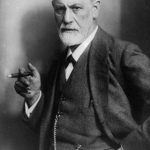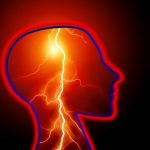The placebo effect
The original meaning of ‘placebo’ comes from the latin word placer – to please (in English "placate"). Placebos were inert substances given to patients to please them so that the patient felt that they were getting some sort of treatment when nothing else was available (Moerman, 2002 p11).
The common meaning of placebo is some inert substance, or some procedure that should not have any medical benefit, but does.
Moerman (2013) argues that the placebo lies not in the substance, but in the meaning that the receiver takes from it. "I will argue that in most of these, the results usually make more sense if we try to determine how a meaningful interaction occurred, rather than trying to understand the effectiveness of … “nothing.” Whatever form the substance takes, in the mind of the patient it represents the whole of medical knowledge, and is imbued with power."
This has been known for centuries: the King’s touch was believed to cure scrofula, a visit to the doctor makes some people feel better, Chinese Americans born in years associated with ‘earth’, years ending in 8 or 9, disproportionately die of diseases such as lumps and tumours, traditionally associated with earth in Chinese culture.
The placebo effect has been tested extensively
Moerman (2013) cites ten different studies showing the placebo effect. In one, patients got more relief from headaches when they believed the aspirin was a heavily advertised branded version, as opposed to an identical unlabeled aspirin.
In dentistry, the dentists were told that their patients were or were not getting an active drug, but the patients weren’t told. The patients whose dentists were told they were using the active drug actually reported less pain, despite having no knowledge of the experiment at all. Another dentistry study proved that belief in the placebo caused measurable physiological changes in the brain, and produced active opiates to relieve pain.
IBS patients were told that they were getting placebo pills, containing only sugar, but that had proved effective in clinical trials in the past: 97% of the patients who knowingly took the sugar pills proved to be healthier on all measures a week later. In trials of depression drugs, placebos did almost as well and produced much the same results.
The placebo effect also exists with active drugs. After surgery all patients were given Tramadol, but some were injected with it and told what it was, while others had it delivered through their IV line without being aware of it. The injected patients reported much more pain relief from identical doses
The conclusion is that people do not respond to placebos, what they respond to is their own beliefs, to the beliefs for of the carers, to their cultural background and to the words that accompany the intervention. It is the totality of the experience that matters.
Placebo Effect and the cycle of healing
Of course there may be no psychological effect at all. One possible reason is regression to the mean. Many diseases get better on their own. The common cold for example takes about a week and a half to run its course if untreated, but if you get the finest treatment that medical science can provide, it will last only about ten days.
Whatever you do for a cold has no effect, but the cold does come to an end, so you can credit whatever you did as curing it. Many diseases are cyclic: you get unwell, then you get better on your own and then you feel unwell again, but there is no cure. The episodes may well be years apart.
The placebo effect comes in because patients seek help when they are unwell, when the cycle is at or near its peak. Left on its own, the symptoms will subside back to average, and whatever is done has no effect at all because the disease is just running along its cycle. The treatment seems to work, but actually has no effect, so whatever you do the outcome is a placebo effect.
This is most likely the reason for many of the strange folk remedies that people believe in.
He is highly regarded in the hypnotherapy community. He is Vice President of the New Zealand Association of Professional Hypnotherapists (NZAPH).
He is regularly consulted for advice by other hypnotherapists around the world. He is known for the quality of his published scripts. He presents at international conferences and has published on hypnosis and advanced hypnotherapy.
He lives in Wellington New Zealand with his wife Trish and a cat called Parsnip.
email: davemason@besthypnosisscripts.com
- AfterwardsnessNachträglichkeit Deferred action - 2019-04-30
- Low Fat Diet Mental Health - 2019-04-12
- Paranormal beliefs in hypnotherapy - 2019-04-09






